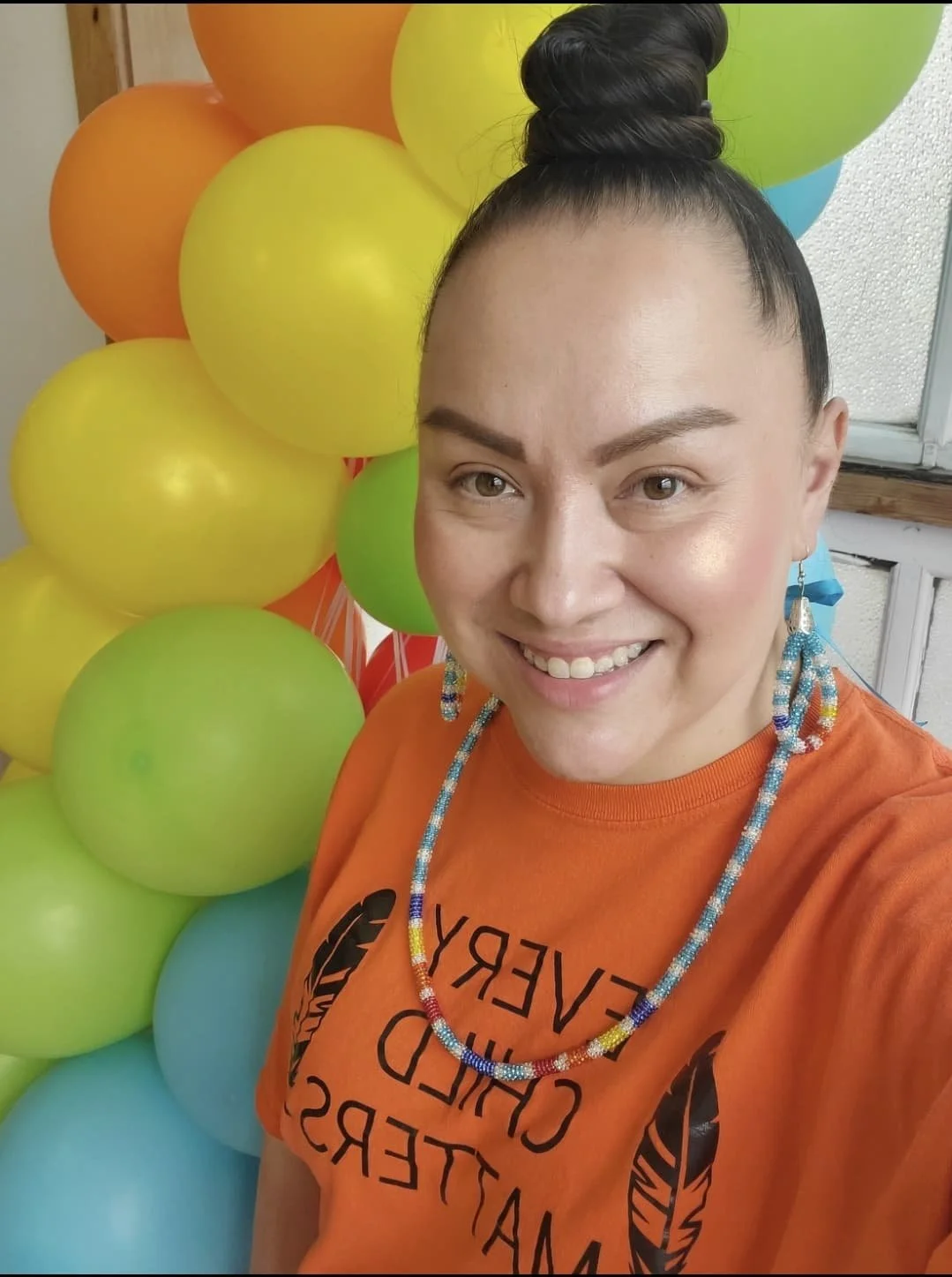Jolene's Story: National Day for Truth and Reconciliation
Today, the National Day for Truth and Reconciliation in Canada honours the children who never returned home, the Survivors of residential schools, and the lasting intergenerational trauma that still exists today. Between 1831 and 1996, there were 140 federally-run residential schools that operated in Canada. Public commemoration of the painful and tragic history is a vital component of the reconciliation process.
At Epicure, we are honoured to work with and learn from resilient, strong Indigenous people—both at our Home Office in British Columbia and across North America. We are sharing three stories today from truly inspirational Indigenous members of our team that were gracious with their time and knowledge on this very important day.
This is Jolene’s story.
My family doesn't speak Cree—when I was young, I spent a lot of time with my grama. She was like my second mom. Growing up, she was taught to be ashamed of her language and her culture, so she never passed it down to her children or her grandchildren. Even when I would ask her, she would never share. When someone would call her who spoke Cree, she would sit in the closet and shut the door to speak back. She would never speak out in the open and I used to think it was funny that she sat in the closet on her phone. It wasn't until I was older that I realized she wasn't being funny.
I grew up thinking she was so loving and kind, which she was, but her children didn't receive the same kind of love that the grandkids did because she didn't know how to show it. Her parents died when she was young, so she grew up and lived in a mission school. A mission school is pretty much like a residential school—both were run by the church with the focus on making the children civilized. She talked about her knees being so bad because of all the kneeling and praying she did. Although she never talked about her experience to us, we found a letter after she passed away that she had her eldest son write for her. So, when you think of generations of families torn apart and the intergenerational trauma, please understand that it continues to this day.
There will always be people who don't want to believe that this is part of Canadian history, but it is. It's time to listen, educate, and let healing begin for Canada. There are people who still choose not to self-identify because of the shame that's been passed down through intergenerational trauma, but with each generation, we continue to heal and grow stronger. My advice for anyone wanting to begin their healing journey would be to surround yourself with positive people who are willing to share their knowledge with you. I believe healing through intergenerational trauma is a lifelong journey and is individual to each unique person.
I am very proud of who I am and where I come from. As an Indigenous woman, educator, and mother, I feel that it's my responsibility to bring awareness when it comes to something as important as the National Day for Truth and Reconciliation in Canada. This day marks the legacy of residential schools in our country and it's part of our history. It's also part of our healing as Indigenous people—it's the day we mourn the loss of family members, the loss of innocent children, and the loss of culture and history for many. It's a day we can stand together and know that we are survivors and that our legacy will continue, despite the efforts of the residential school system and the undeniable cultural genocide that was forced upon us.
I now call Sherwood Park home. I grew up in Prince George, BC and moved to Edmonton in 2002 to attend the University of Alberta where I graduated with two degrees: the first is a Bachelor of Arts with a major in Native Studies and a minor in Sociology. My second degree is a Bachelor of Education to help fulfill my goal of becoming a teacher in the hopes of teaching Indigenous children like me and one day be role model for Indigenous youth.
I am a Grade 4 teacher at a school in Edmonton that provides Cree language and culture to First Nations, Métis, and Inuit students within the city. I have been at my school for 8 years. Students are able to smudge, pray, and take an active role in their language and culture.
My culture inspires me every single day to be the role model I always wanted when I was in school. Hearing my students smudge, pray, drum, sing, and learn to speak Cree is my inner child’s wildest dream! My daughter is learning to be proud of who she is and I hope she never feels ashamed about that.
My culture inspires me every single day to be the role model I always wanted when I was in school.
I'm very happy that Epicure is honoring September 30 and it makes me very proud to be part of the Diversity, Equity & Inclusion (DEI) Committee to see changes really happening. While there is still a lot of work to be done, I can't wait to see it grow every single year.
-----------------------------
If you are interested in learning more, here are some resources that Jolene recommends:
“The information you’ll find can depend on what area you live in and what’s available. Indigenous people across Canada are so diverse and unique it would be best to make contact in your area, but here are some great places to start.”
I am not a number I am not a number
We Were Children – movie available on Amazon
Jolene Lalonde
Epicure Senior Consultant


